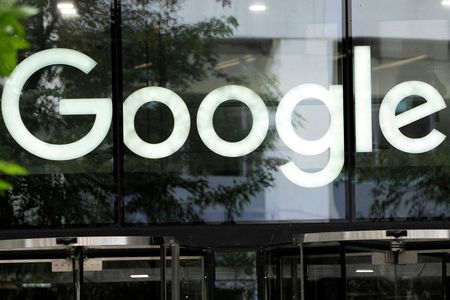By Foo Yun Chee
BRUSSELS (Reuters) -Alphabet’s Google has offered to make further changes to its search results in its latest attempt to avoid a European Union antitrust fine, according to a document seen by Reuters.
The world’s most popular internet search engine modified its July proposal following feedback and criticism from vertical search engines, which are specialised search engines with links to a specific sector such as hotels, airlines, restaurants and transport services.
Price comparison sites have also criticised its previous proposals.
Google has come under European Commission scrutiny since March for allegedly favouring its own services such as Google Shopping, Google Hotels and Google Flights over competitors. It risks a fine in the coming months, other sources have told Reuters.
The EU case is under the landmark Digital Markets Act, which sets out a list of dos and don’ts to limit the power of Big Tech, create room for rivals and increase choice for users.
Google said its latest tweaks were in response to calls that search results for third-party VSSs and Google should have the same information, functionality and features.
“We will create the opportunity for each VSS to show its own box on Search. A VSS box will be populated with results from that VSS inventory,” the company said in its proposal.
It added the box would have the same format and information for third-party VSSs as for Google.
The winning bid for the box would be based on objective and non-discriminatory criteria and it would not share its rivals’ data with others, Google said.
Suppliers – in essence hotels, restaurants, airlines and travel services – would be placed in a box either above or below the VSS box depending on the relevance to the user’s query.
Google said it was keen to find a balanced solution and bring the EU investigation to a close but warned of risks ahead.
“We remain concerned that any further changes to Search would prioritise the commercial interests of a small set of intermediaries over European businesses who want to sell directly to their customers,” a Google spokesperson said.
(Reporting by Foo Yun Chee; editing by Barbara Lewis)











